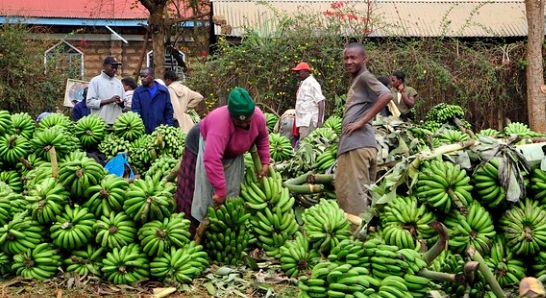For countless Africans living overseas, the desire to reconnect with home—either through a permanent return or by making a meaningful impact from afar—continues to inspire action. From sending financial support to loved ones, to constructing family homes or funding local initiatives, the diaspora has become a critical force driving Africa’s economic resilience. Yet beyond these occasional remittances lies a much bigger opportunity: the chance to make deliberate, long-term investments that not only uplift communities but also create sustainable wealth for the investors themselves.
The key lies in moving from emotional support to smart, sustainable investment. Diaspora investment doesn’t just help the individual grow wealth—it strengthens local economies, creates jobs, and encourages development. Here are practical and safe ways Africans abroad can start investing in their home countries.
1. Invest in Local Real Estate.
Real estate continues to be one of the most popular investment avenues for the African diaspora. Whether it’s buying plots of land, building rental properties, or owning commercial spaces, real estate can offer stable and appreciating returns.

To reduce risks, always involve a trusted local legal representative or real estate agency. In some countries like Nigeria, Ghana, Kenya, and South Africa, there are registered real estate companies that cater specifically to diaspora clients. Some even offer diaspora-friendly payment plans, legal protections, and guaranteed rental returns.
Avoid sending money to family members for building projects unless you’re 100% sure they have experience managing such tasks. Many diasporans have lost money this way. Instead, hire professionals, request contracts, and monitor progress remotely using video updates and project management apps.
2. Participate in Government Diaspora Bonds.
Many African governments now issue diaspora bonds to attract foreign-based nationals to invest in national development. Countries like Ethiopia, Nigeria, Ghana, and Rwanda have explored or implemented such bonds.
Diaspora bonds are generally safer than other forms of investment because they are backed by the government. The money raised typically goes into infrastructure projects, healthcare, or education. These bonds often come with flexible terms and reasonable interest rates—making them an excellent long-term option for those who want to support their country while earning returns.
Before buying any government bond, make sure it is officially sanctioned and handled through regulated institutions such as the central bank or registered brokers. Avoid private brokers who don’t have licenses to deal in such products.
3. Start or Fund a Local Business.
Another high-impact approach is investing in local businesses. This can range from launching your own enterprise to funding startups run by locals. Some areas with high potential include agribusiness, manufacturing, logistics, e-commerce, and education.
Thanks to technology, managing or monitoring a business from abroad is more possible than ever. With the help of local partners and digital tools, you can maintain control while staying informed.
If you’re not ready to build your own company, consider supporting existing small businesses. Platforms like ThriveAgric (Nigeria), FarmCrowdy, and Chamasoft (Kenya) allow diaspora members to invest in agribusiness cooperatives or savings groups.

Another great way to invest safely is by joining diaspora investment groups or co-operatives, where members pool resources to fund businesses or properties back home. These groups help reduce individual risk and allow for larger impact.
4. Use Fintech and Digital Investment Platforms.
Modern African fintech platforms are revolutionizing how diasporans invest. Apps like Chaka (Nigeria), Bamboo, Trove, and Rise enable Africans abroad to invest in both global and local stocks from the comfort of their phones. Meanwhile, platforms like Afriex and Sendwave make cross-border payments fast and affordable, reducing remittance costs.
Some platforms, such as Zeno or Ndovu in Kenya, offer robo-advisory services where users can set their investment goals, risk preferences, and get automated portfolio management. These apps allow for small, consistent investments that compound over time.
Just ensure that any app or fintech company is licensed by relevant financial authorities. Read user reviews, verify the company’s registration, and understand the terms and fees before sending money.
5. Invest in Agriculture and Land Projects.
Africa’s agricultural potential remains largely untapped. Diasporans can now invest directly in agribusiness projects that provide returns through crop sales, export markets, or land leasing. Some initiatives offer guaranteed returns after harvest or profits shared from produce sales.

For example, investing in a mango farm in Kenya or a fish pond in Malawi may seem like small ventures, but with proper management, they can become passive income streams. Companies managing these farms provide regular updates, profits, and sometimes even opportunities to visit or tour the farms when you’re home.
6. Use Local Banks with Diaspora Investment Packages.
Several banks across Africa offer diaspora banking and investment services. These services allow diasporans to open foreign currency accounts, access local investment products, and participate in money market or fixed deposit schemes that yield competitive interest rates.
Look out for banks with good reputations, online banking features, and strong customer service. Examples include Ecobank, GTBank, UBA, and Stanbic—many of which offer mobile and internet-based services tailored to diasporans.
7. Build with a Long-Term Mindset.
Many Africans abroad face pressure to send money back home constantly, which can sometimes lead to poor financial decisions. The best way to balance giving and growing is to prioritize structured, long-term investments over quick fixes.
Set clear financial goals: Do you want to own a home? Fund a community project? Retire in Africa? Once your goals are defined, channel part of your income toward vehicles that align with those dreams.
Set up an emergency fund and avoid tying all your capital in one venture. Diversify across sectors and countries when possible. Think like an investor, not just a giver.
Conclusion.
For Africans living in the diaspora, the opportunities to grow wealth back home are vast—but they require strategy, patience, and informed decision-making. Whether it’s real estate, business, agriculture, or government bonds, there’s a path for every budget and risk appetite.
Investing back home doesn’t only secure your financial future—it contributes to building the Africa we all dream of. Let your money work for you and your continent.
